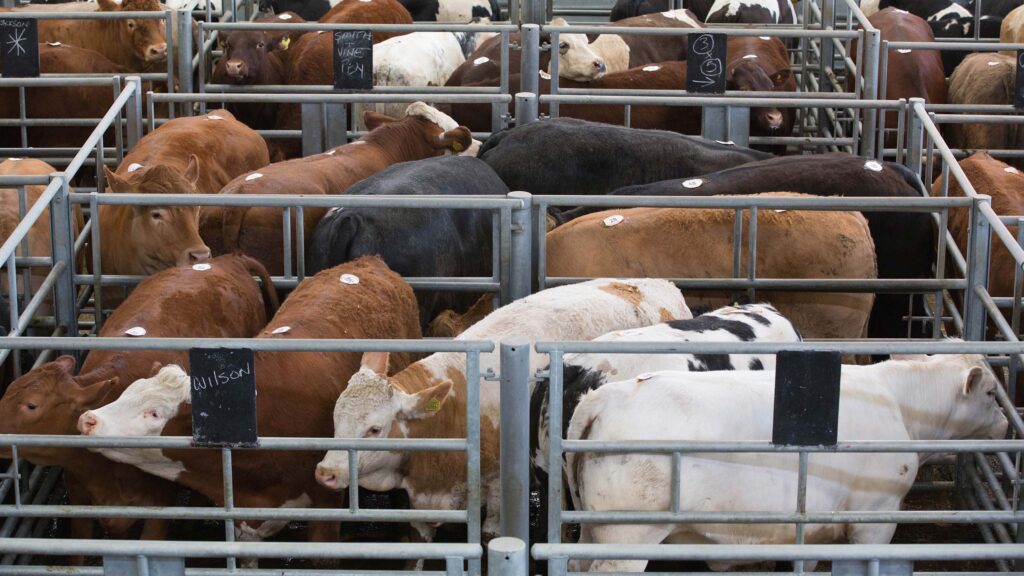Trade at livestock markets hit by bluetongue policy changes
 © Tim Scrivener
© Tim Scrivener Auction marts on the English-Welsh border are concerned at the impact the looming bluetongue policy changes will have on breeding sales, with some effects already being felt.
From 1 July, the whole of England will be declared a restricted zone (RZ). In response, the Welsh government is requiring all live animals moving into Wales be either fully vaccinated or have a negative pre-movement test.
Industry concerns are already materialising with calf prices rocketing in the past week at Hereford market, with some exceeding £1,000 a head.
See also: Spring lambs see resurgence as values lift back above £7/kg
“We’ve seen baby calf prices go through the roof in the past few weeks,” said Matthew Nicholls, director at Hereford and Builth markets. “Purchasers are worried about availability.”
While sheep breeding sales have not started yet, Mr Nicholls is concerned at the impact these diverging policies will have. “We’re anticipating a two-tier trade as a result of the bluetongue policy,” he said. “Breeding ewes and breeding rams in Wales will be a lot more expensive than in England.
“It’s a completely disproportionate response to the risk and cases seen in England.”
To alleviate Welsh vendor concerns over the ability to sell cattle, the mart said it would cover post-movement tests for any cattle that did not sell and needed to return to their holdings in Wales.
The National Sheep Association (NSA) has also raised concerns over the impact on livestock trade and prices, and is planning to make changes to this year’s sales.
“Vendors will have far fewer buyers competing for store and breeding sheep, resulting in a two-tier trade and devaluing stock,” said NSA chief executive Phil Stocker.
Last year’s main NSA ram sale in Wales turned over more than £2.25m, with about 40% of vendors based in England and Scotland.
“We are currently looking at moving the sale outside Wales or having two separate sales,” Mr Stocker said.
Shrewsbury Auction Centre manager and senior auctioneer Jonny Dymond also noted a disruption to dairy cattle trade. “In the past three weeks we’ve seen averages for fresh heifers go for £2,700, an increase of about £500 from early June.
“While some of that has been driven by numbers and seasonality, there was a marked increase in the number of stock and Welsh buyers on 24 June, which drove market averages to near record levels.”
English dairy cattle coming from the current RZ in England saw restricted bidding, though, and Mr Dymond estimates they sold for £300-£400 below open market prices.
A total of 142 store cattle went up for sale at Shrewsbury on 19 June, with auctioneers saying trade for cattle this month was the best it had ever been.
A 15-month-old Limousin steer, weighing in at 625kg, sold for £2,220, while a 17-month-old suckler-bred Charolais, weighing 505kg, achieved £1,970 or 390p/kg.
There were 11 Welsh vendors present with cattle to sell, while not a single beast was sold to a Welsh buyer.
